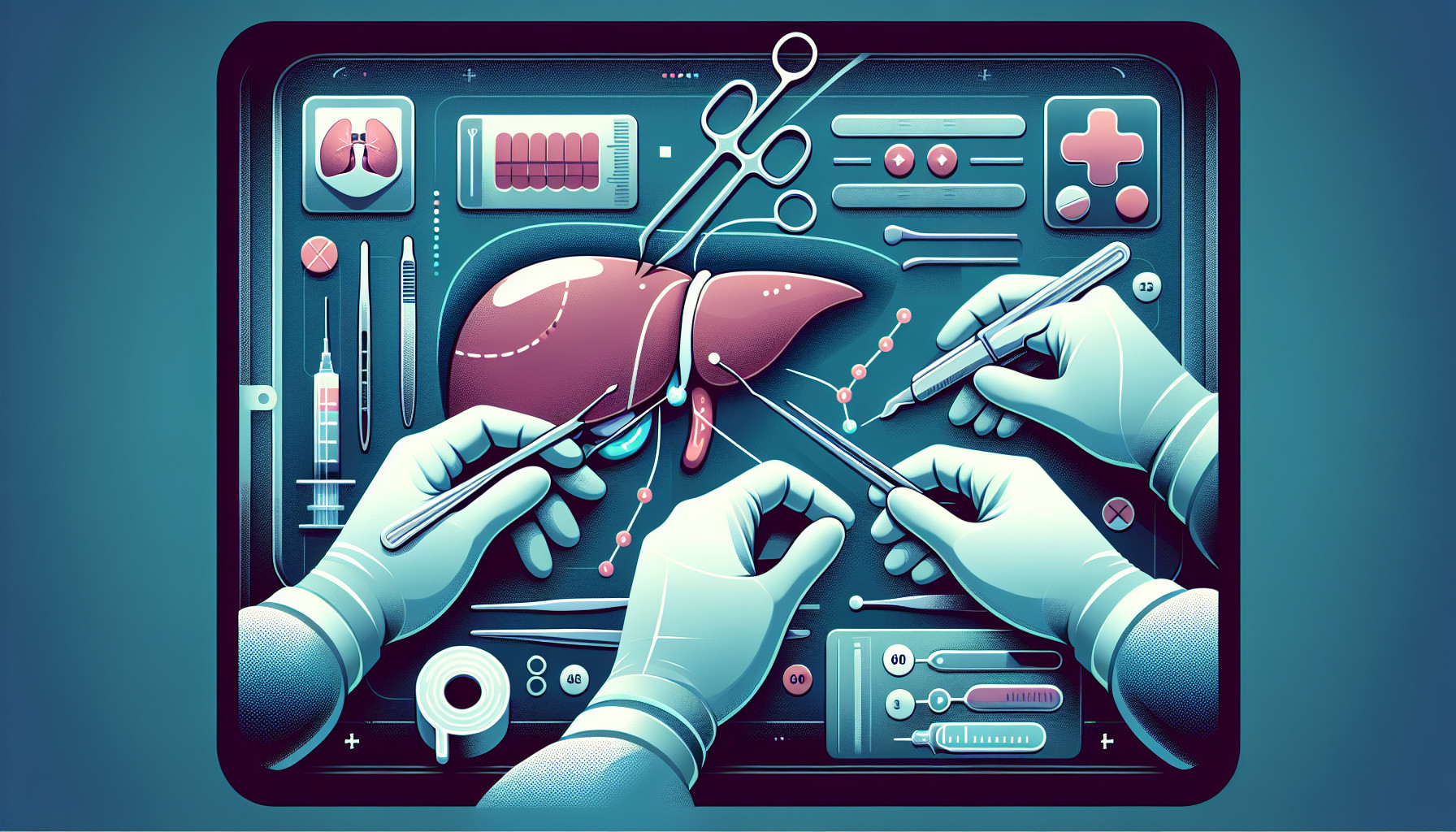Our Summary
This study was conducted to understand the complications that may occur due to liver biopsy, a common procedure used in diagnosing and monitoring liver diseases. The researchers also wanted to compare whether the complications differed when the biopsy was performed blindly or with the help of ultrasound. The study was conducted on children who had undergone liver biopsies in a hospital in Iran between 2008 and 2012.
Out of 210 patients, data from 7 were excluded due to it being unreliable. So, 203 patients were included in the final study. The study found that about 10.5% of the patients experienced complications after the biopsy, with pain being the most common. One patient (0.5%) died due to the rupture of a hematoma (a collection of blood outside of a blood vessel).
The study found no significant difference in the rate of complications between patients who underwent a blind biopsy (where the doctor doesn’t use imaging guidance) and those who had an ultrasound-guided biopsy. In other words, using an ultrasound did not seem to reduce the risk of complications from a liver biopsy.
FAQs
- What was the main purpose of the study conducted on liver biopsies?
- What percentage of patients experienced complications after a liver biopsy according to the study?
- Did the use of ultrasound in liver biopsies reduce the risk of complications, according to the study?
Doctor’s Tip
A helpful tip a doctor might tell a patient about liver biopsy is to make sure to follow all pre-procedure instructions, such as fasting before the biopsy. It’s also important to inform the doctor about any medications or supplements being taken, as some may need to be stopped before the procedure. After the biopsy, it’s crucial to follow all post-procedure care instructions, such as avoiding strenuous activities and monitoring for any signs of infection or bleeding. It’s also important to contact the doctor immediately if there are any concerning symptoms after the biopsy.
Suitable For
Patients who are typically recommended for a liver biopsy include those with:
- Suspected liver diseases such as cirrhosis, hepatitis, fatty liver disease, or liver cancer
- Abnormal liver function tests that do not have a clear cause
- Monitoring of known liver diseases to assess progression or response to treatment
- Evaluation of liver damage or inflammation
- Diagnosis of specific liver conditions such as autoimmune liver disease or genetic liver disorders
It is important for healthcare providers to carefully weigh the risks and benefits of a liver biopsy for each individual patient, taking into consideration factors such as the patient’s overall health, the severity of their liver disease, and alternative diagnostic options.
Timeline
Before the liver biopsy:
- Patient is referred to a specialist for a liver biopsy due to suspected liver disease.
- Patient undergoes pre-procedure screening and blood tests to assess their overall health and clotting ability.
- Patient is given instructions on fasting and medication restrictions before the procedure.
During the liver biopsy:
- Patient is positioned on their back or side on an examination table.
- Local anesthesia is administered to numb the area where the biopsy needle will be inserted.
- The doctor uses a needle to collect a small tissue sample from the liver.
- The patient may feel pressure or discomfort during the procedure, but it is generally well-tolerated.
After the liver biopsy:
- Patient is monitored for a few hours to check for any immediate complications such as bleeding or pain.
- Patient may experience mild pain at the biopsy site for a few days after the procedure.
- Patient is advised to avoid heavy lifting and strenuous activities for a period of time to prevent complications.
- Results of the liver biopsy are usually available within a few days to a week, and the doctor will discuss them with the patient during a follow-up appointment.
What to Ask Your Doctor
Some questions a patient should ask their doctor about liver biopsy include:
- What is the reason for recommending a liver biopsy?
- What are the potential risks and complications associated with a liver biopsy?
- How will the biopsy be performed - blindly or with the guidance of ultrasound?
- What can I expect during the procedure and how long will it take?
- Will I be sedated or given anesthesia during the biopsy?
- How long will it take to get the results of the biopsy?
- What follow-up care will be needed after the biopsy?
- Are there any specific instructions I need to follow before and after the biopsy?
- How often will I need to have a liver biopsy done?
- Are there any alternative tests or procedures that can provide similar information without the need for a biopsy?
Reference
Authors: Honar N, Jooya P, Haghighat M, Imanieh MH, Dehghani SM, Zahmatkeshan M, Javaherizadeh H. Journal: Arab J Gastroenterol. 2015 Sep-Dec;16(3-4):90-3. doi: 10.1016/j.ajg.2015.09.009. Epub 2015 Oct 30. PMID: 26526508
